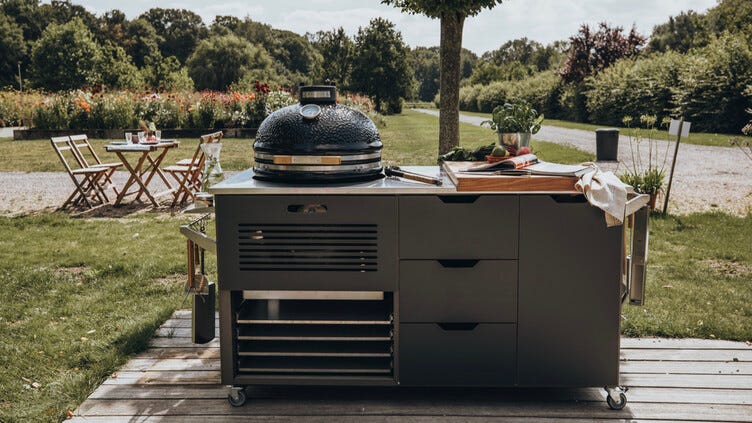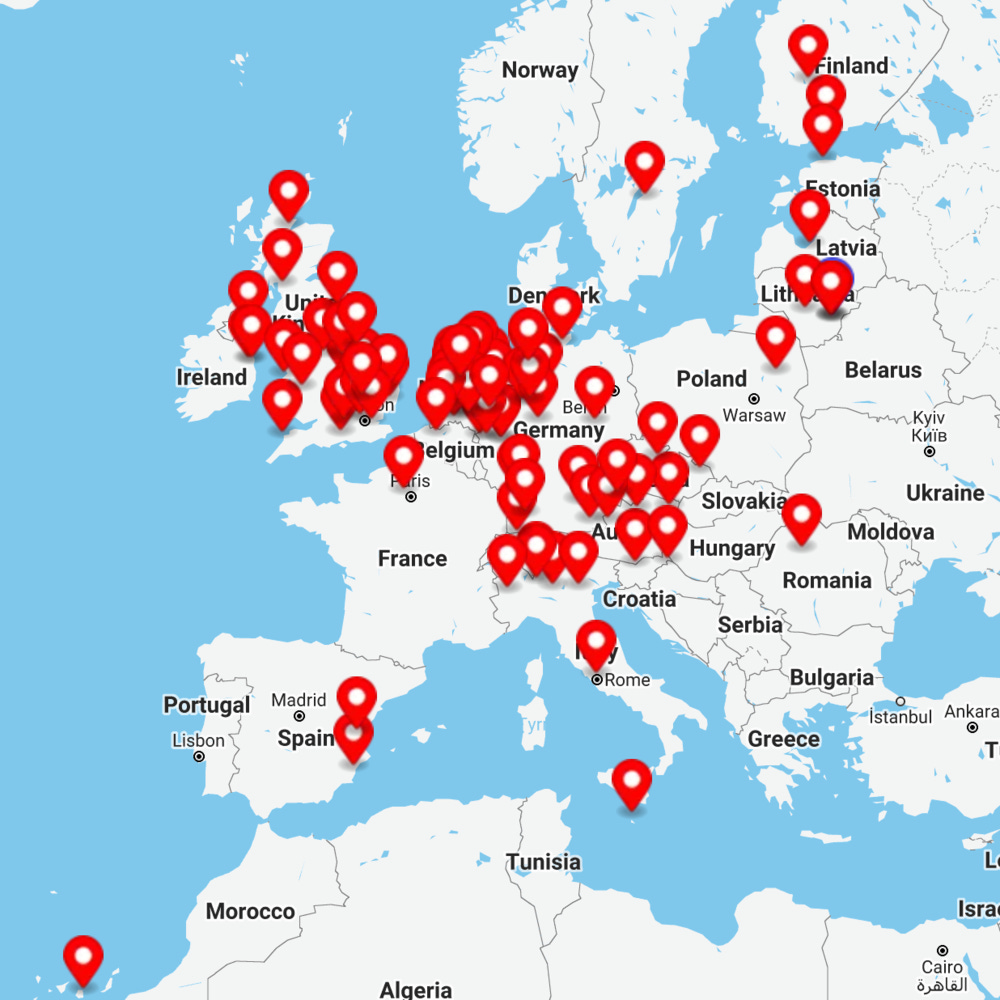I stuck doing this logical exercise and call #venturecapital network for help. I wouldn’t ask for a hand if it wasn’t 8 figures worth exercise, literally.
VCs usually define the following investment criteria for early stage startups:
market both big and growing. $1B+ and +5% CAGR is more/less OK
product market-fit. Must be proved by actual sales for real customers
anti-fragile growth strategy
strong founders team
qualify specific industry (#fintech, #agtech, #biotech, #healthcare, #deeptech, #foodtech, #cleantech, #DTC, #cloud, #enterprise, #ecommerce, consumer platforms, advanced materials, #robotics, #space etc.)
Honestly, I’ve got a problem only with the last one.
There’s an underlying assumption that nowadays scale is impossible without deploying disruptive technologies. It must be an Internet platform that allows you to reach millions of consumers. Or it must be IoT to bring happiness to the family house. Or at least AI because otherwise your startup will be drawn in a data ocean.
In my past life (being TOC consultant) I experienced that exponential growth can be achieved just by doing ‘regular business’ extremely smarter. You just need to 'remove a significant limitation for the customer in a way that was not possible before and to the extent that no significant competitor can deliver' (Eli Goldratt’s quote). Then fasten seat belts and catch up booming demand with operations.
Sure, often customer limitations are eliminated by new tech. The problem here occurs when new tech imposes new limitations (e.g. you can see a product online, but you can’t touch or test it online). Then an innovator has no choice but to change the rules and customer behaviour so they benefit from that technology. This takes either much time or huge marketing budgets.
We had none of them.
In mid-March of 2020, Gedi and myself were just kicked back from the US that closed its borders along with the market for our product Nr. 1 that we’ve been working on for the whole year. We had to bury our baby Nr. 1 and start the next one, a Corona baby, at the same founders meeting that day.
Burial was emotionally hard but quick. While it took a couple of hours to define criteria for next baby:
high demand during pandemic and after
sold globally
It must be early market - big enough to capitalize on innovators and extremely huge after crossing the chasm
It must be possible to engineer from scratch to market in 6 months (a period that we expected to bootstrap somehow before take-off)
In-house manufacturing only at own hardwood and metal processing facilities (because outsourcing always adds extra variability to the supply)
After checking all R&D backlog product-ideas against the criteria, one stood out from the rest. We focused on it.
Meet KamadoSpace, an outdoor kitchen that connects offline:
uncompromising design
grill brand neutral (be it Kamado Joe, Weber, Big Green Egg, Primo, Napoleon, Traeger, etc.)
modular, plug & cook
complete ecosystem, that integrates your backyard gadget zoo as it grows, step-by-step, 100% consistent
flat-pack on a pallet, off-the-shelf at BBQ store
Ready-to-Manufacturing, Ready-to-Logistics, Ready-to-Assemble. Consumers place a disproportionately high value on products they partially created.
As you see, we took one page from IKEA (Ready-to-Assemble), one from LEGO (modularity), one from Apple (ecosystem) and… 20 pages from Theory of Constraints (Critical Chain Project Management in R&D; Dynamic Buffer Management in distribution, Sales Factory in sales, Thinking Processes in innovation).
20 months have passed since. So far:
KamadoSpace brand, born in the end of 2020, is the fastest growing outdoor kitchen brand in Europe
€1M sales during the product's first year. 100% market fit.
first product time-to-market was 8 months (from idea to payment). It's a hi-end engineered and mass-produced hardware, BTW
90% production we do in-house
100 retailers selling KamadoSpace products in Europe; retail network is growing every day since we have a mafia offer
we’re on the front-end of an exponential growth curve with ambitions to reach €500M revenue in Y2025. And we're looking for VC to back exponential growth in the market of $18B.
Could such a scale be possible outside any *tech industry? Or do I just fail to qualify properly?
In the comments tag VC helpful investors if you know any. My hints bellow.
#Deeptech - if DeepTech means solving big problems, we don’t qualify. We don’t cure skin cancer nor fight climate change. We only address grilling enthusiasts and amateurs, backyard/patio owners who are dissatisfied with the lower level of comfort when cooking in the backyard: lack of storage, lack of prep area, incompatible weather conditions, ugly patio. On the other hand, in the US the installed base of grills is nearly 100 million now (20 million grills were purchased in 2020!). Despite the fact that in US grills are installed 6 times more often than skin cancer is diagnosed, First World problems shouldn’t be considered big enough for #deeptech to address.
#Foodtech - here we almost qualify under Appliances and Cookware subcategories only if we ignore that KamadoSpace does not provide (so far) any new distribution channels nor more personalisation. Well we believe that just adding an app to a basic appliance isn't the answer. Forcing cooks to look at their phones instead of the food makes no sense. Our consumers love KamadoSpace because it enables them to enjoy offline cooking. Because cooking is always an offline phenomenon (both hands are required for action, you know). And no app can wash a barbecuer's hands - only water can. Want a sink unit? Beware it is without a bluetooth - so we most probably do not qualify.
#Proptech - no way we can qualify here. KamadoSpace will never speed up the transactions, demonstrate augmented reality or optimize the way people research, rent, buy, sell their property. What KamadoSpace can do, is to significantly increase the value of a family house. Especially in times when ongoing supply chain disruptions and labor shortages kill any idea about outdoor kitchen on time, in budget. What if a high-end outdoor kitchen was in the $3-4K range and built in no time (1-2 hrs) even by amateurs? Could it justify new house record prices by advertising (and delivering) ‘house+outdoor kitchen’ bundle? Anyway, this channel has nothing to do with tech, it’s just another brick and mortar business.
#Space - we don’t qualify even in this category!!! Regardless of the modularity idea was taken by Gedi, VP Engineering, from ISS, outdoor kitchen modules are being connected and disconnected here on Earth. No go.
#DTC - no go here too. KamadoSpace is a brand that does not sell directly but supports local community retailers to do so. DTC idea is to expand margins via vertical integration by cutting out middlemen. But instead of cutting fellow independent BBQ stores that serve local communities, we cut one chain upstream by creating our own manufacturing operations instead of contracting it out. We also cut downstream distributors and do distribution by ourselves through regional warehouses and subsidiaries (KamadoSpace, Inc. (US), KamadoSpace Limited (UK), КАМАДОСПЕЙС, ООО (Russia). In the end of the day we have cut enough chains to keep RRP as low as possible but share margins with retailers who ensure brand exposure.
Unless people keep going to community stores regularly for charcoal, real meat (not 3D printed), rubs and spice, we will be following our market where purchasing conditions happen. We take care of retailers, they take care of the local community. I disagree that independent shops are middlemen - they’re rather last mile. You cut it then you need to workaround and stay in the market as long as fuel ads. Watch Outer who went DTC only and now works hard to change people behavior so they’d go to the ‘hosts’ (existing customers house) to touch furniture before buying it online.
No, we don’t qualify for #DTC.
#Hardtech - I love this category, but VCs usually don’t. They seem to interpret this quite negatively, believing that ‘hard’ means ‘not feasible’, ‘too high risk’ or ‘low potential’ (which is false). Some interpret HardTech to exclusively mean ‘Hardware’ (which is true). Weber, Inc. (WEBR), Traeger, Inc. (COOK) both went to IPO on the NYSE this year being pure hardware brands, now EV $1.91B and $1.94B respectively, obviously still with high potential. I believe it was not the app that made them BBQ world unicorns. Perhaps outdoor cooking just isn't all that ripe for disruption.





